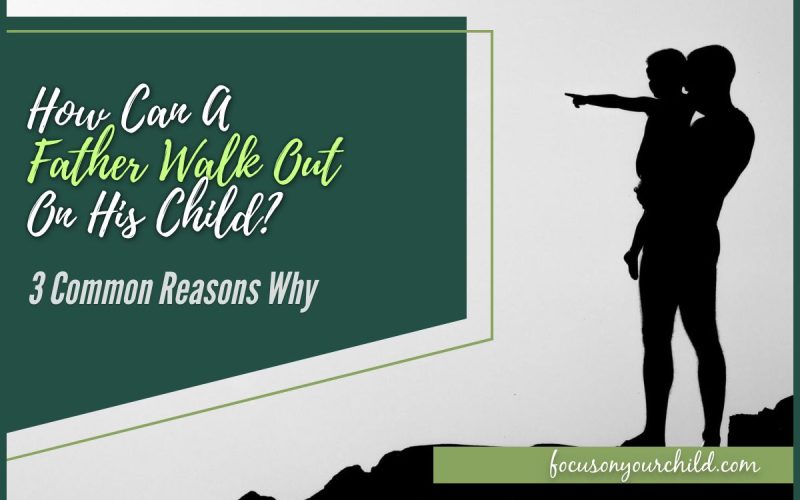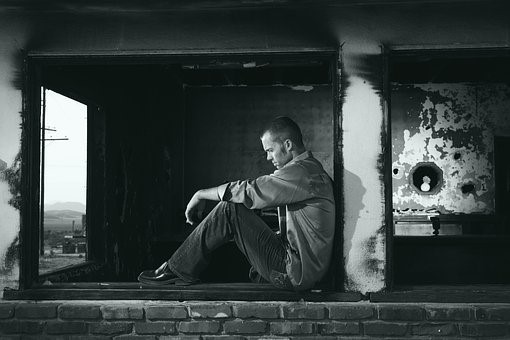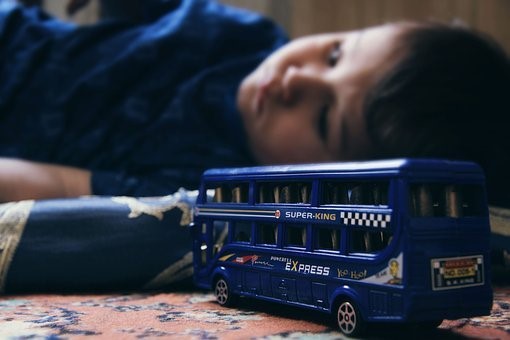When a father walks out on their child, one of the most pressing questions for the people left behind is “Why?”. There are a few reasons that might contextualize this type of choice, though admittedly most of them serve as little more than excuses over anything else.
It’s still important to understand the why of it – doing this makes it easier to process what transpired, which in turn helps the family recover emotionally. We’ll do our best to help you see where they might be coming from, along with providing some crucial advice on how to best proceed in their absence.
Some fathers leave because they find it painful to stay with their children – they might view them as a reminder of a failed relationship and treat them distantly. Some absent fathers just aren’t interested in raising their kids. Others might not believe they’re worthy of being in their family’s lives, so they take the initiative and leave them to their own devices.
No matter the reason, a father walking out on their family will drastically alter the dynamic for the ones left behind, making it very difficult for them to carry on. That said, it’s not impossible to push forward – communication with the rest of your family is key to getting through this ordeal.
Below are three common reasons as to why fathers might walk out on their children. Do bear in mind that the options below aren’t mutually exclusive.
Reasons Why Fathers Walk Out on Their Children
They Find It Too Difficult To Stick Around
Sometimes, a father can walk out on their child because the situation is too much to bear. This can begin over a failed relationship, along with whatever bitterness developed there. The children they had with their partner are a constant reminder of that for some, even if only by association.
If a father walks out on their child, chances are that the kid will continue to blame themselves. Even if it isn’t the child’s fault, it can be difficult to separate them from the notion of their failure. Some try and fail, while other kids don’t even bother trying to begin with.
It could be other types of pressure at play here. Sometimes, fathers might also believe they aren’t a “real” part of their family. Fathers are usually relegated to the role of providers in the household. Sometimes they dedicate themselves to that function so much they forget that they can be other things in the family, leading to their emotional decline.
It’s not an excuse for their abandonment by any means, but it can contextualize what kind of thoughts they were experiencing before they decided to leave.
In certain cases, it might even be a matter of family biases. Not every family approves of their spouse’s partner – it could be a matter of status, finances, or even race – and absentee fathers could have folded to that pressure over siding with the family they’ve made.
They Aren’t Interested In Raising The Child
This remains a sad reason as it is a selfish one, but sometimes it’s just that simple: some men aren’t interested in raising the child they fathered. They’d rather prioritize their career, hobbies, or just freedom itself over responsibilities to their family.
All children deserve parents, but not every parent deserves a child. This can’t be helped, but it’s a fact that needs to be learned: the earlier this reality sinks in, the better it’ll be for your family’s long-term well-being. A father who walked out on their child won’t be conducive to that goal, so focus on the people who need you – not the one who left.
As a mother, your priority is tending to your children to the best of your ability. As a child, your priority is becoming the best person you can be. A father should play a supportive role for both, but in their absence, the people left behind need to find new strength to carry on.
They Believe The Child Would Be Better Off Without Them
Some fathers view themselves through the lens of familial or societal demands, and if they fall short, it could quickly develop into feelings of inadequacy. They could view themselves as failures – or at minimum bad influences – and that their child would be better off not being exposed to their shortcomings.
Society tends to view fathers as not only breadwinners but pillars of the family. Any weakness or insecurities that develop will, more often than not, get left to fester quietly. They would rather leave their families behind to develop without them than entertain the idea that being imperfect doesn’t necessarily make them irreparable failures as fathers.
They could also choose to leave in order to reduce household tensions – either to their partner, their child, or some other member of the family. Whether they’ve discussed that in-depth with their partner or not varies between cases.
Even if it was done for allegedly altruistic reasons, their leaving still deprived a child of their father, a mother of their partner, and a household of their future in it.
How Does Their Leaving Affect Your Family?
Emotional Turmoil and Alienation
A father leaving usually ends with the people left behind blaming themselves or one another. It often leads to an abundance of emotional trauma, stress, and a high probability of separation anxiety developing – especially for the children.
This could also end up alienating his side of the family against you – sometimes they might even extend this coldness to your child. Thankfully, this isn’t always the case. Your closeness to his side of the family will be a strong factor in deciding how this new dynamic develops.
As a now-single mother though, you’ll have more pressing concerns to deal with than their side of the family.
Financial Concerns
An absent father is more than just an emotional problem. On a practical level, it usually robs your family of a breadwinner. Even if both of you worked prior to them leaving, the family will still take a huge dip in both income and economic stability. It’s one less pair of hands to earn for the family, and one less pair of hands to take care of the children.
What To Do Afterwards?
It’s easy to just feel utterly lost when fathers walk out on their families, but the rest of the family still needs to be taken care of. Don’t ever lose sight of that and them.
As a Mother
Some spouses who left were troubled. Some might be confused. Some might have even been abusive. A lot of complicated emotions can come into play, and what’s crucial is ensuring you process all of them properly. Feel free to be emotional – there’s nothing wrong there at all. If you’re feeling upset, welcome it and get it out of your system.
Don’t hide the truth of this from your child. They’re just as confused and hurt as you are, and denying them a real answer could end up with them blaming you. It’s important to dispel any illusions about who their father is or why they left. Not doing so risks them fantasizing about how good that parent is, and your child might even hold their absence against you.
Be honest with them, but not to the point of condemning your former partner’s memory. Give them time and context to draw their own conclusions about the situation, but be ready to provide all the support they need to get to that point.
It’s important to get your negative emotions out of your system, but don’t let your mom take the brunt of it. Just because they look strong doesn’t mean they aren’t struggling like you are, and they definitely don’t deserve any more pain than what they’re already dealing with.
They’ve likely dedicated themselves to making sure you’re managing the situation well. If you’re struggling at all, please let them know so you can try to solve the issue together. If you’re coping well, be sure to tell them that.
The last thing you want to do is keep them guessing about how you’re feeling, so be ready to openly and honestly communicate whatever it is that’s on your mind.
Final Thoughts
“How can a father walk out on his child?” isn’t a question that dredges up gentle answers. Fathers can walk out on their kids for a few different reasons – but just because a few of them might be understandable doesn’t mean they ought to be acceptable.
Be honest, communicative, and comforting when talking with your child about this difficult topic. Focus on the family that’s still left rather than trying to bring back someone who doesn’t want to be a part of its future.










